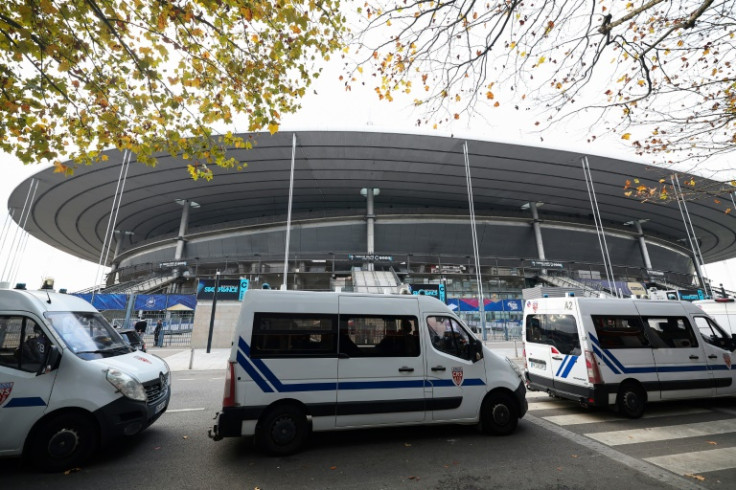Israel Face France In Paris Football Match Under Tight Security

Israel face France in a Nations League football match in Paris on Thursday surrounded by a huge security operation to prevent a repetition of the attacks on Israeli fans in Amsterdam last week.
The Paris police chief has described the match at the Stade de France as "high risk" and Israel has urged its citizens to avoid the fixture, which authorities fear could become another flashpoint following the violence in the Netherlands.
The security context has clearly impacted the attendance, with only around 13,000 spectators expected at the game in a venue that holds up to 80,000, French Interior Minister Bruno Retailleau said on Wednesday.
Supporters of the Maccabi Tel Aviv club were chased by men on scooters and beaten after a Europa League match against Ajax in Amsterdam on November 7.
Amsterdam's Mayor Femke Halsema called it a "poisonous cocktail" of anti-Semitism.
Dutch police said the violence came after Maccabi fans had set fire to a Palestinian flag the night before, and vandalised a taxi.
The mayor, however, stressed on Tuesday that "even though a more complete picture emerged" of the evening's events, "and all sorts of terrible things happened, it in no way negates that a 'hunt for Jews'" call had gone out.
The violence in Amsterdam took place with anti-Israeli sentiment and reported anti-Semitic acts across the world soaring as Israel wages wars against Iran-backed Islamist militants in Lebanon and Gaza.
Dutch far-right MP Geert Wilders blamed the violence on "Muslims".
France has the largest Muslim population in western Europe.
Several thousand people demonstrated in Paris on Wednesday evening against the holding of an "Israel is Forever" gala in the city, organised by far-right figures.
Protesters waved Palestinian flags and set off red flares, AFP photographs showed. Clashes broke out with police firing tear gas and some protesters damaged the window of a restaurant.
A total of 4,000 police and members of the security forces will be stationed in Paris and around the Stade de France, where the athletics and rugby sevens events were held during this year's Olympics, for Thursday's match.
In a rare move, police will also be deployed inside the stadium. Civilian staff are normally assigned to those roles.
An elite police unit will guard the Israeli team on its journey to and from the stadium and another 1,600 civilian security personnel will also be on duty at the match.
A French police source said that around 100 Israeli fans will attend the match. They will travel to the game on buses to avoid using the underground Metro system.
"I can understand why people don't want to come," one of France's players, defender Dayot Upamecano, said.
"I'm just here to play. I like peace and I hope one day we will have it again, in all countries," the Bayern Munich player said.
France coach Didier Deschamps admitted the match was being played in a "heavy atmosphere".
President Emmanuel Macron and Prime Minister Michel Barnier will attend, as well as former presidents Francois Hollande and Nicolas Sarkozy.
Macron's presence at the match is aimed at drawing a line after "controversies and misunderstandings" in recent relations between France and Israel, a member of his team said.
Last week in Jerusalem, Israeli police entered a French-owned church compound, briefly detaining two gendarmes and prompting French Foreign Minister Jean-Noel Barrot to abandon a scheduled visit.
The president would be present at the match "because there was strong emotion, especially after Amsterdam", the official said.
"It is important to show support, to also say that we will not give in to fears.
"I know that there have been controversies and misunderstandings. But for us, there is no doubt about the involvement of the president in the fight against anti-Semitism."
A handful of French lawmakers, including from the France Unbowed (LFI) party, have called for the match to be postponed or moved to another city.
But Retailleau dismissed that suggestion. "France is not backing down because that would amount to giving up in the face of threats of violence and anti-Semitism," he said.
The Belgian government took a different course of action when its national men's team faced Israel in September. It decided to move the match to Hungary, citing security concerns.
On the pitch, France only need a draw to secure a place in the Nations League quarter-finals.

© Copyright AFP 2025. All rights reserved.





















